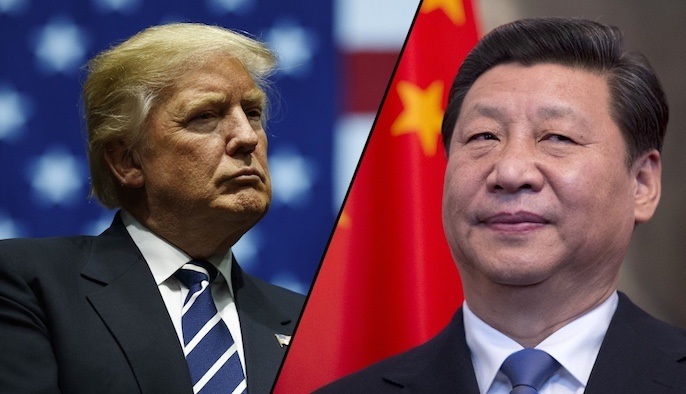
Trump Makes a Significant Policy Change by Exempting Chips and Smartphones from China Tariffs
Trump has given significant exemptions for chips and cellphones, giving tech companies some breathing room in the face of rising tariffs.
In the face of mounting industry fears, US President Donald Trump has granted broad exclusions from his administration’s high import tariffs on electronic equipment, such as smartphones, laptops, and semiconductors. This is a significant reprieve for US tech companies.
The exemptions, which go into effect retrospectively on April 5th, cover products that are subject to both the 10% global import tax and the 125% “reciprocal” duty on Chinese imports.
The action marks the first major relaxation of Trump’s tariff campaign against Beijing, which had been escalating bit by bit in recent weeks and included an 84% Chinese countermeasure and a 145% US duty on certain Chinese goods.
As he traveled to Miami, Trump stated on Air Force One, “We’ll be very specific, but we’re taking in a lot of money.” We’re earning a lot of money as a nation.
American IT behemoths like Apple, Nvidia, and Microsoft urgently lobbied for the verdict, claiming that their reliance on Chinese production would cause costs to soar.
Wedbush Securities’ global tech research head, Dan Ives, described it as a “game-changer scenario,” particularly for companies that depend on chip manufacturing.
While Samsung and other companies continue to diversify into Vietnam, Apple, which reportedly produces 80% of its iPhones headed for the US in China, had been planning to increase production in India.
The exemption was defended by the White House as a short-term solution that would enable supply chains to be moved by internet companies.
“President Trump has made it clear that America cannot rely on China to manufacture critical technologies like semiconductors, chips, smartphones, and laptops,” said White House Press Secretary Karoline Leavitt in a statement. These businesses are working hard to quickly onshore their manufacturing in the United States at the president’s request.
Deputy Chief of Staff Stephen Miller stated that even with the exclusions, the impacted electronic products are still liable to a separate 20% tax associated with the fight against fentanyl importation.
According to estimates, passed-on manufacturing expenses may have caused iPhone prices in the US to triple in the absence of the exemption.
In a move seen as a negotiation strategy to increase US trade leverage, Trump stated that nations who do not retaliate against US tariffs would be granted a 90-day reprieve from harsher charges, with only a 10% blanket duty to be applied until July.
In reference to his connection with Chinese President Xi Jinping, Trump continued, “I think something positive is going to come out of that.”
With Trump doubling down on restructuring global supply networks and trying to protect important domestic companies from the consequences, the most recent exemptions represent a significant change in trade policy.
All Categories
Tags
+13162306000
zoneyetu@yahoo.com



